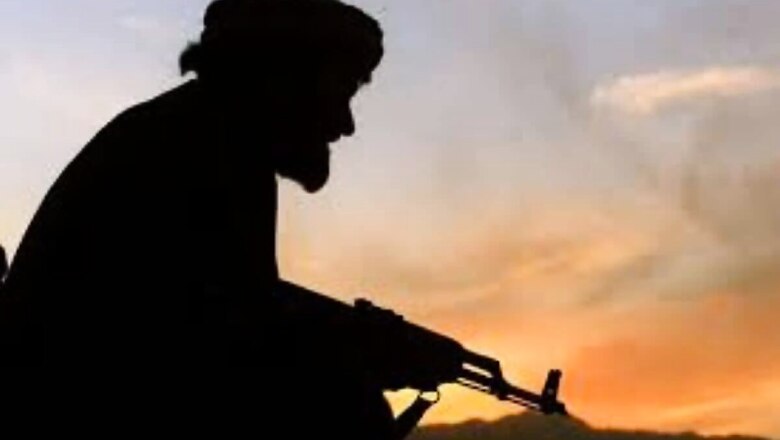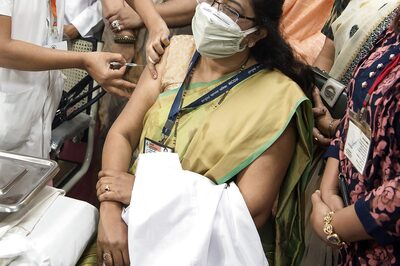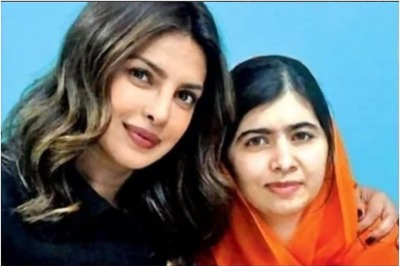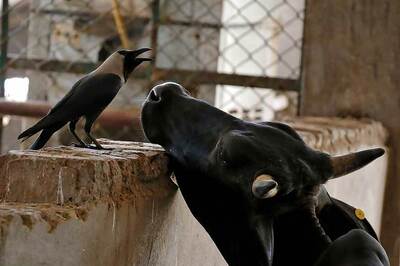
views
United Nations: India on Monday voiced concern that the UN Secretary General's report on children and armed conflict includes "allegations" that are not situations of armed conflict or threats to international peace and security, saying attempts to selectively expand the mandate politicises the agenda. Foreign Secretary Harsh Vardhan Shringla made the remarks in his address to the UN Security Council open debate on Children and Armed Conflict.
"Despite the Council's clear mandate, we note with concern that the Secretary General's report includes allegations that are not situations of armed conflict or threats to the maintenance of international peace and security," Shringla said. "We must be cautious as attempts to selectively expand the mandate politicises the agenda, diverting attention from real threats to international peace and security and to children in armed conflict," he said.
Secretary General Antonio Guterres's report on Children and armed conflict' mentions India under Situations not on the agenda of the Security Council or other situations'. In the report, Guterres says he remains "concerned" by violations against children in Jammu and Kashmir. He also welcomed the positive engagement of the Indian Government with his Special Representative to "put in place national preventive and accountability measures for all grave violations." Shringla told the Council that the COVID-19 pandemic has further negatively impacted children in situations of armed conflict, including by hampering their access to education, health and social services. The pandemic has made them susceptible to grave violations, particularly through recruitment and abduction. He added that school closures due to the pandemic have provided an even greater opportunity to terrorist groups to target children, including through online avenues, for radicalisation and indoctrination in violent extremist ideologies.
India voiced concern over the "dangerous and worrying" trend in global terrorism of an increase in number of children being recruited and involved in terrorism-related activities. Shringla said terror groups take advantage of the fact that children are the most susceptible to manipulation. "We believe that there is a need for a more coordinated approach in implementing the child protection and counter terrorism agendas. States need to demonstrate greater political will to hold the perpetrators of terrorism and their sponsors to account, and to fulfill the Council's child protection obligations." India also called for ending impunity for all actors responsible for inciting and perpetrating grave violations against children. "There must be greater accountability and sincere efforts in bringing the perpetrators to justice by governments from whose territory such entities operate, he said.
Shringla further underscored that it is important that States keep child protection concerns at the core of their pandemic response measures and recovery plans. He stressed the critical need for close cooperation between the UN and its Member States for developing an effective and sustainable policy for repatriation and reintegration of children affected by armed conflict. "States should adopt an inclusive approach to provide protection to child victims during the rehabilitation and reintegration process in post-conflict situations," he said, adding that assistance to national governments for capacity building and strengthening legal and operational tools for child protection is vital.
"The monitoring and reporting mechanism of the UN should ensure continuous involvement of and close cooperation with the Member States concerned, including ensuring the veracity and reliability of data collection," he said. Addressing the Council, Guterres said conflict devastates societies and hits children particularly hard. He said during 2020, almost 24,000 grave violations were committed against 19,300 children in the 21 situations covered by the UNSC mandate.
"The disregard for children's rights at times of conflict and upheaval is shocking and heartbreaking. The most prevalent verified violations continued to be the recruitment and use of children, the killing and maiming of children, and the denial of humanitarian access to children," he said. "Moreover, new and deeply concerning trends emerged: an exponential increase in the number of children abducted, and in sexual violence against boys and girls, he added.
Quoting Mahatma Gandhi, Shringla said, If we are to reach real peace in this world and if we are to carry on a real war against war, we shall have to begin with children" Shringla said, "unfortunately we are not living in an ideal world today and as noted by the Secretary General in his report, the scale and severity of violations perpetrated against children in armed conflict remains on the rise. It is clear that there remain significant challenges to the implementation of this mandate." He stressed that national governments have the primary responsibility for protecting the rights of the child as mandated by the Convention on the Rights of the Child. India encouraged Member States to ratify the Optional Protocol to the Convention on the Rights of the Child on the Involvement of Children in Armed Conflict and to adopt robust legal frameworks for protection and promotion of child rights.
"The aim should not be merely protecting children from child-related crimes but also to provide them with holistic development opportunities, including free and compulsory education, he said. He told that the Council that India's experience in UN peacekeeping over the decades that highlighted that the importance of having sufficient resources and requisite number of child protection advisers in peacekeeping missions for the effective implementation of child protection programmes. "The Council may consider incorporating adequate child protection provisions and capacities in all relevant mandates of UN peacekeeping operations, he said.
.
Read all the Latest News, Breaking News and Coronavirus News here.




















Comments
0 comment